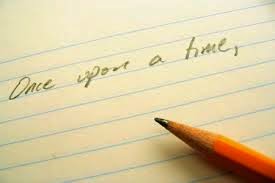 |
| c.fuelyourwriting.com |
She’s so
stupid...why would she do that?....Why did I do that?...Why did I say
that?...This is going to turn out so bad...I knew I couldn’t trust her. I’ve
got to hurry up and get this done...
Every minute of every day our minds run narratives, like an audiobook or a talk radio station that we can’t turn off. We
may think that these thoughts are for our protection or for our good, but their
incessant rambling threatens our sense of serenity and ultimately our
well-being. They’ll put us in defense mode, which will stunt productivity.
Are you holding onto grudges? They’ll be
thrown into the mix as well, affecting how you treat others. So and so didn’t
treat you as the wonderful person you know you are? Damn them to hell, and
treat them thusly. I guarantee
your day will be on edge.
I have spent several days with inner
monologues so loud and dominating that it’s been hard to concentrate on the
tasks and conversations at hand. So what if they are stupid? So what if they
don’t do things the way I would. How does that really affect me?
I completely agree with Amanda Enyati, as she
said on Facebook:
Here's my
working theory. It may be correct or not. But I believe that our awareness of
the extent to which our personal narratives may be impacting any given scenario
in our lives is the hallmark of good mental health, perhaps even spiritual
well-being.
And one way to assess that well-being is to see how many times a day we are offended by others. Now I'm absolutely not talking about matters of fairness, equity or social justice. I adore and admire the lion-hearted activists who help bring about change with both minute, every-day acts of bravery and grand, systemic ones. I'm talking about a different sort of offense: personal offense. “You did this and I’m offended” or “You said this and I’m offended” as a rough sort of meter for individual mental state and well-being.
And one way to assess that well-being is to see how many times a day we are offended by others. Now I'm absolutely not talking about matters of fairness, equity or social justice. I adore and admire the lion-hearted activists who help bring about change with both minute, every-day acts of bravery and grand, systemic ones. I'm talking about a different sort of offense: personal offense. “You did this and I’m offended” or “You said this and I’m offended” as a rough sort of meter for individual mental state and well-being.
The best way to change our narratives for the better is to detach from the situation and make ourselves an observer in the story rather than the object, which is more than likely what we are anyway.
c.2014











No comments:
Post a Comment